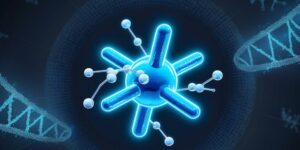Does Rapamycin Protect Neuron Cells?

Tumor Susceptibility Gene 101 (TSG101) plays a part in the cell’s usual controls on growth or repair, a process that helps cells clear excess proteins. Cleaning ht cell from these excess proteins is called autophagy, and it keeps neuron cells healthy.
Rapamycin is a chemical that triggers autophagy. The study showed that Rapamycin increased TSG101 protein level to promote autophagic flux in neuron cells. When TSG101 levels go up, cells can better break down unwanted, degenerate proteins.
Researchers knocked down TSG101 to see what would happen if cells lost this protein. They observed more autophagosomes, which are structures that gather waste. These structures could not finish their job without enough TSG101. As a result, harmful proteins and other debris stayed inside the cells.
The team used fluorescent markers to watch key steps in autophagy. These markers helped them see where TSG101 aids protein cleanup. They saw that TSG101 helps fuse waste-packed autophagosomes with other cell compartments. Together, these compartments break down excess proteins.
Without TSG101, the cells failed to remove clumps of proteins, even if rapamycin was present. Researchers also noted that neuron cells had lower survival when TSG101 was reduced. This suggests that TSG101 is crucial for keeping these cells in good shape.

These findings may help explain how rapamycin protects neuron cells. TSG101 seems to support rapamycin’s protein-clearance work, which might be useful for preventing damage linked to protein buildup. Scientists hope these insights will guide new ways to protect neurons in diseases that harm the brain.




